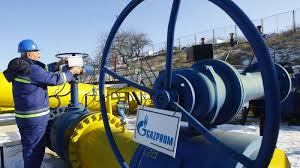An EU official announced on Wednesday that the European Union will temporarily switch back to coal in order to deal with slower Russian gas shipments as a result of tight gas markets and skyrocketing gas prices.
Following the invasion of Ukraine, which forced Europe to impose severe sanctions on Moscow, European politicians have turned against Russia as flows via its Nord Stream 1 pipeline were reduced to only 40% of capacity. This has deepened an energy standoff.
The International Energy Agency (IEA) stated that in order to deal with gas shortages, Europe must replace Russian energy sources while increasing efficiency and renewables, including nuclear power.
As winter approached, IEA chairman Fatih Birol cautioned that Russia might continue to find justifications to reduce or stop supply. Russia has refuted claims that its supply reductions are planned.
The Baltic States could become a new focal point for the energy issue.
In response to Lithuania’s suspension of train shipments of some Russian goods to Moscow’s Kaliningrad exclave, the Russian president told reporters that his country was prepared to cut Lithuania off from a shared electricity grid.
The Kremlin has threatened retaliation but hasn’t specified how it would manifest.
In light of President Vladimir Putin’s actions, Europe will temporarily pursue fossil fuel alternatives to Russian gas, but these efforts won’t undermine longer-term climate change ambitions, according to a senior European commission official.
“The unlawful invasion by Russia of Ukraine has resulted in an emergency situation in the EU,” Elina Bardram, acting director for International Affairs and Climate Finance at the European Commission, told the Africa Energy Forum in Brussels.
She continued, “We are doing some very critical things, but all of those measures are temporary. With the very reckless movements, we are watching from the Putin government in terms of Gazprom cutting the flow very rapidly.
SEARCHING FOR OPTIONS
To address concerns about winter energy shortages and a surge in inflation that could test Europe’s commitment to continue sanctions against Russia, countries have detailed a number of solutions to weather a supply problem.
German Finance Minister Christian Lindner stressed the need for solutions to address the three or more years of energy constraint on Tuesday evening, warning that a catastrophic economic disaster was possible.
Despite remaining much lower than last week when Gazprom reduced capacity due to technical difficulties, Russian gas deliveries to Europe via the Nord Stream 1 pipeline and through Ukraine were constant on Wednesday.
The request for gas from Gazprom made on Wednesday by the Italian energy company ENI was only partially approved.
The benchmark gas price in Europe was around 127 euros ($133) per megawatt-hour (MWh), down from the year’s high of 335 euros but still higher than it was a year earlier by more than 300%.
Europe is trying to replenish winter gas storage – presently at 55 percent – as it expects future delays in supplies from Russia, which has already cut off some clients.
After the German business group BDI warned that a recession in the biggest economy in Europe would be likely if Russia stopped supplying gas, Lindner issued his warning.
The EU and other major economies have sanctioned Russian oil and coal but stayed off blocking gas imports.
High power prices and limited supplies may be alleviated by upgrading aging nuclear infrastructure, according to the IEA.
The battle has highlighted the necessity to investigate possibilities for… investment in new facilities as well as the reopening of existing (uranium conversion plants), especially in light of the increasing interest in nuclear power’s role in clean energy transitions.
More broadly, the $2.4 trillion slated to be invested in energy this year includes record spending on renewables but fell short of closing a supply shortfall and fighting climate change, the IEA said.

















